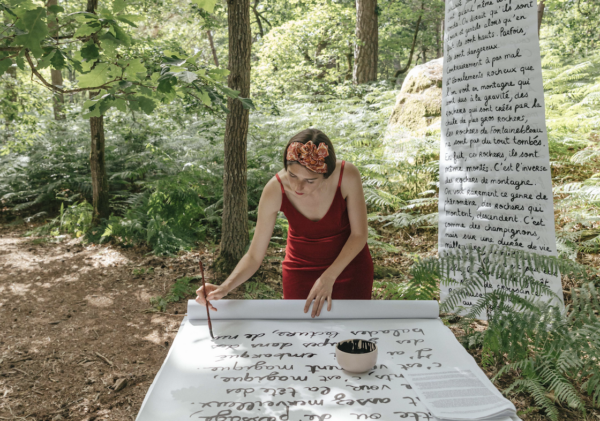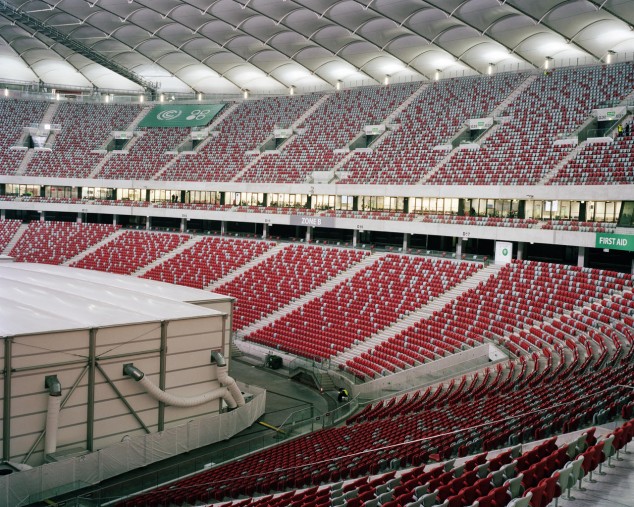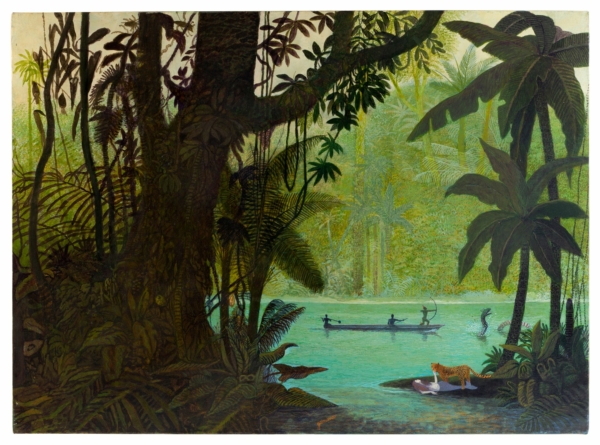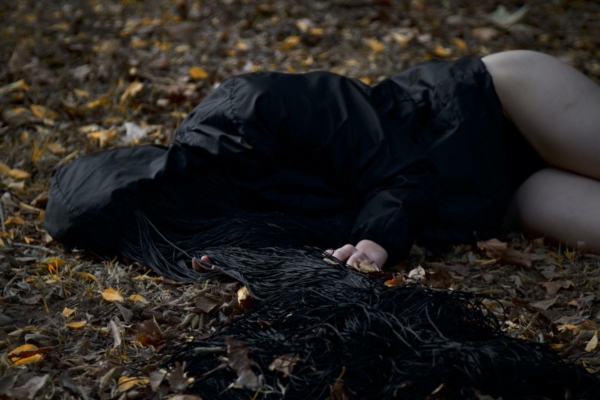
Appel à résidences – les Nuits des Forêts 2026
En 2026, le festival Nuits des Forêts invite les artistes à prêter l’oreille au vivant. À travers un appel à…

Crédit image : COP19, United Nations Climate Change Conference, Warsaw, 2013. Photo: Giulia Bruno and Armin Linke.
L’Observatoire de l’Anthropocène est une exposition de la recherche et de l’espace discursif qui propose de repenser le monde contemporain à travers le prisme de la «thèse anthropocène. » L’Anthropocène se définit comme une époque dans la chronologie géologique au cours de laquelle l’impact global des activités humaines est inscrit sur la planète Terre. Cette ère géohistorique marquée par la domination des espèces humaines a apporté des transformations qui ont des conséquences sans précédent pour toutes les facettes de notre présent et de l’avenir. À travers ces façons de voir et de savoir, de sentir et d’être, pouvons-
Composé de films, interviews, documents imprimés, et d’installations qui permettent de découvrir des questions allant de la modélisation spatiale et territoriale au changement climatique et de la politique de l’environnement à l’analyse appliquée des systèmes aux opérations de puissance supranationale et à leurs structures, l’Observatoire de l’Anthropocène tente de figurer et de reconstruire les relations enchevêtrées entre la géologie et l’histoire politique. En rendant apparent comment le système mondial capitaliste est verrouillé avec la transformation rapide de l’économie de la Terre – comment la modification des sources d’énergie en corrélation avec des ordres politiques, juridiques, administratifs et spatiaux spécifiques, depuis les cités-
L’exposition Observatoire de l’Anthropocène fait partie d’un parcours de recherche, d’apprentissage, d’exposition et d’édition organisé au BAK de février à juin 2015. Elle a lieu pendant le semestre « Human-
Exposition du 7 février au 26 avril 2015
BAK, basis voor actuele kunst, Lange Nieuwstraat 4
3512 PH Utrecht (Pays-
Tél. : +31 30 231 6125.
Ouverture du mercredi au dimanche de 12h à 18h.
________
IN ENGLISH
Anthropocene Observatory, which takes place at BAK from 7 February–26 April 2015, is a research exhibition and discursive environment that proposes to rethink the contemporary world through the prism of the “Anthropocene thesis.” The Anthropocene is understood as an epoch in geological chronology during which the global impact of human activities is inscribed onto planet Earth. This geohistorical era—marked by the domination of the human species—has brought along transformations that bear unprecedented consequences for all facets of our present and future. Through what ways of looking and knowing, of feeling and being, can we assess these radically altered circumstances? What (future) vocabularies of politics, science, and art might enable us to know, envision, and do things otherwise?
Developed by Territorial Agency (headed by the London-based duo of architects and urbanists John Palmesino and Ann-Sofi Rönnskog) in collaboration with Berlin-based artist Armin Linke and curatorAnselm Franke, Anthropocene Observatory forms a complex knowledge archive and study environment that gestures towards ways of approaching these questions. Functioning as an observatory, it puts forth the data and knowledges collected and generated over the course of the last two years, offering them up for public inquiry and critical exploration, so as to probe how the Anthropocene thesis is being recognized and disputed, embraced and discredited, negated and applied across a wide spectrum of scientific, political, and cultural contexts.
Consisting of films, interviews, printed documents, and installations that uncover issues ranging from spatial and territorial modelling to climate change and environmental politics to applied systems analysis to supranational power operations and their institutions, Anthropocene Observatory attempts to image and reconstruct the tangled interrelationships between geology and political history. By making visible how the capitalist world-system is interlocked with the rapid transformation of the Earth system—how changing sources of energy correlate with particular political, legal, managerial, and spatial orders, from city-states dependent on wood, to imperial reliance on the harvesting and uneven distribution of coal, to the global constellation’s dependency on fossil fuels and nuclear energy—the project asks whether the extant infrastructure of knowledge, politics, science, and art is adequate in meeting these colossal challenges. Anthropocene Observatory urges us to not leave these issues unaddressed.
Anthropocene Observatory is made possible with support from Haus der Kulturen der Welt, Berlin. For more information on the Anthropocene Observatoryat HKW, please click here.
ACQUISITION OF ANTHROPOCENE OBSERVATORYBY CENTRAAL MUSEUM:
BAK co-produced the Anthropocene Observatory, and brings it to the Netherlands for the first time ever. The collaboration with Centraal Museum has led to an acquisition of a key work fromAnthropocene Observatory for the Museum collection. The work consists of a video-diptych that focuses on the distinct Dutch practices of water management and coastal protection, as well as a series of filmed research interviews on climate change. The acquisition thus assures the presence of a work around one of the most crucial themes of our era for the public in Utrecht and beyond.
Exhibition 7 February –
BAK, basis voor actuele kunst, Lange Nieuwstraat 4
3512 PH Utrecht (The Netherlands).
Tel. : +31 30 231 6125.
Opening hours: Wednesday–Sunday 12.00–18.00 hrs.
En 2026, le festival Nuits des Forêts invite les artistes à prêter l’oreille au vivant. À travers un appel à…
le Center for Art, Research and Alliances (CARA) à New York présente The Earth, the Fire, the Water, and the…
Et si la frontière entre l’humain et le non-humain n’était qu’une construction fictionnelle — et si ces fictions pouvaient être…

